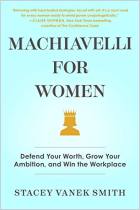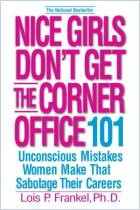Fully 500 years ago, Niccolo Machiavelli wrote The Prince – a manual of functional duplicity for interpersonal power dynamics and political intrigue. In her update of his advice, Stacey Vanek Smith demonstrates that Machiavelli’s rules for ambitious men work surprisingly well for women in the modern workplace. Nora Ali and Bruce Shapiro interview Smith on Morning Brew’s Business Casual podcast about the timelessness and hard-boiled practicality of Machiavelli’s advice for women navigating today’s corporate politics.
Machiavelli wrote The Prince in the 16th century as a manual for princes who wanted to seize and maintain power.
Nicolo Machiavelli held a powerful position in Florence, akin to secretary of state, until the Medici family took power. They confiscated all his property and money, threw him in jail, tortured him and then kicked him out of Florence. He wrote The Prince as a message to the head of the Medici clan in hopes the Medicis would hire him, even though he had previously worked for their rivals. Machiavelli’s plan backfired. Lorenzo Medici claimed he never read The Prince, and the Catholic Church forbade people to own it.
Machiavelli’s 500-year-old advice rings remarkably true today because – despite how much the world has changed – human nature hasn’t.
In modern times, white men are, in Machiavellian terms, akin to “the inheriting princes of the workplace,” and women are would-be conquerors. For inheriting princes, life is pretty easy. No one questions their authority; they represent the status quo. Part of what creates the glass ceiling blocking many women from advancing is that – by virtue of their...




















Comment on this summary or 开始讨论